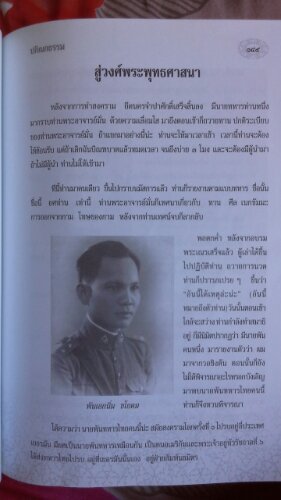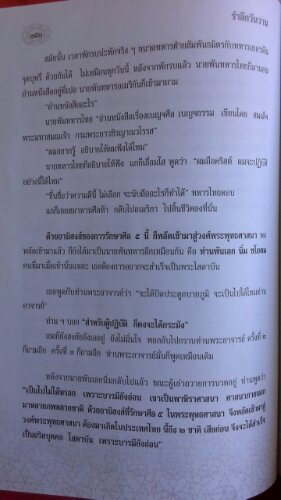Can people who weren’t born Buddhists achieve a level of enlightenment in this lifetime?
In a book about Phra Acariya Mun Bhurridata’s life (รำลึกวันวาน, “Back in the Day”), there was a story related to this topic. A Thai General named Nim Chayodom went to pay his respects to Luang Bu Mun and mentioned that he wanted to seal off the doors to hell. For this to happen, General Nim would have to attain at least the first level of enlightenment (sotapanna).
General Nim asked Luang Bu Mun if he would be able to become a Sotapanna in this lifetime.
Luang Bu Mun replied, “for those who practice, it may be possible.”
General Nim asked the same question two more times, and Luang Bu Mun replied in the same way.
After General Nim had left, Luang Bu Mun explained that in his previous life, General Nim was an American soldier who fought in World War I. During a break in the war, the American soldier walked over to where a Thai soldier was sitting, and asked him what he was reading. The Thai soldier replied that he was reading a religious text on the five precepts.
The American soldier said, “I am a Christian. Can I also follow the five precepts?”
The Thai soldier said, “Doing good is good regardless of religious inclination.”
Thus, the American soldier upheld the five precepts until the day of his death. The merit the American soldier gained from upholding the five precepts warranted a reincarnation as a Thai male, born into the Buddhist religion. In this lifetime, he was Nim Chayodom, and became a soldier just like in his previous life.
Luang Bu Mun mentioned that there was no way for General Nim Chayodom to become a Sotapanna in this lifetime because his perfections of character were not strong enough. Coming from a foreign religion, General Nim would have to be reborn in the Buddhist religion up to two times before having a chance at attaining a level of enlightenment.
After reading this, I felt that it was unfortunate that people who were not born Buddhist, but had found Buddhism later on in their lives and wanted to achieve a stage of enlightenment, wouldn’t be able to. Why would those people even strive for enlightenment in this lifetime if it there was no chance?
Then I remembered how the Buddha himself often answered the same question differently, due to the circumstances in front of him. Could it be possible that what Luang Bu Mun said really only pertains to General Nim or people similar to him? What was unique about General Nim’s situation?
Surely it can’t be so cut and dry. Could it be possible for people who weren’t born into Buddhism to become enlightened? Could it be possible for people who were born into Buddhism not to have a chance at enlightenment in this lifetime? What are the deciding factors?
I’ve known people who say they believe in two religions, that each religion has good aspects and can be practiced simultaneously. Yet these two religions clash at significant points, over the concept of God and karma, or the end point being heaven or nirvana. Could this ambiguity close off the doors to enlightenment?
I have also known people who were raised to be devout in a non-Buddhist religion, but found themselves having doubts about that religion. After researching and experimenting, they ended up choosing Buddhism. They are positive that Buddhism is the right path for them. Could this absolute dedication open the doors to enlightenment?
Since the great enlightened masters like Luang Bu Mun and Luang Bu Thoon are gone, there is no one left to ask. I guess that means, if we want to know, we’ll have to figure it out on our own.


No Comments